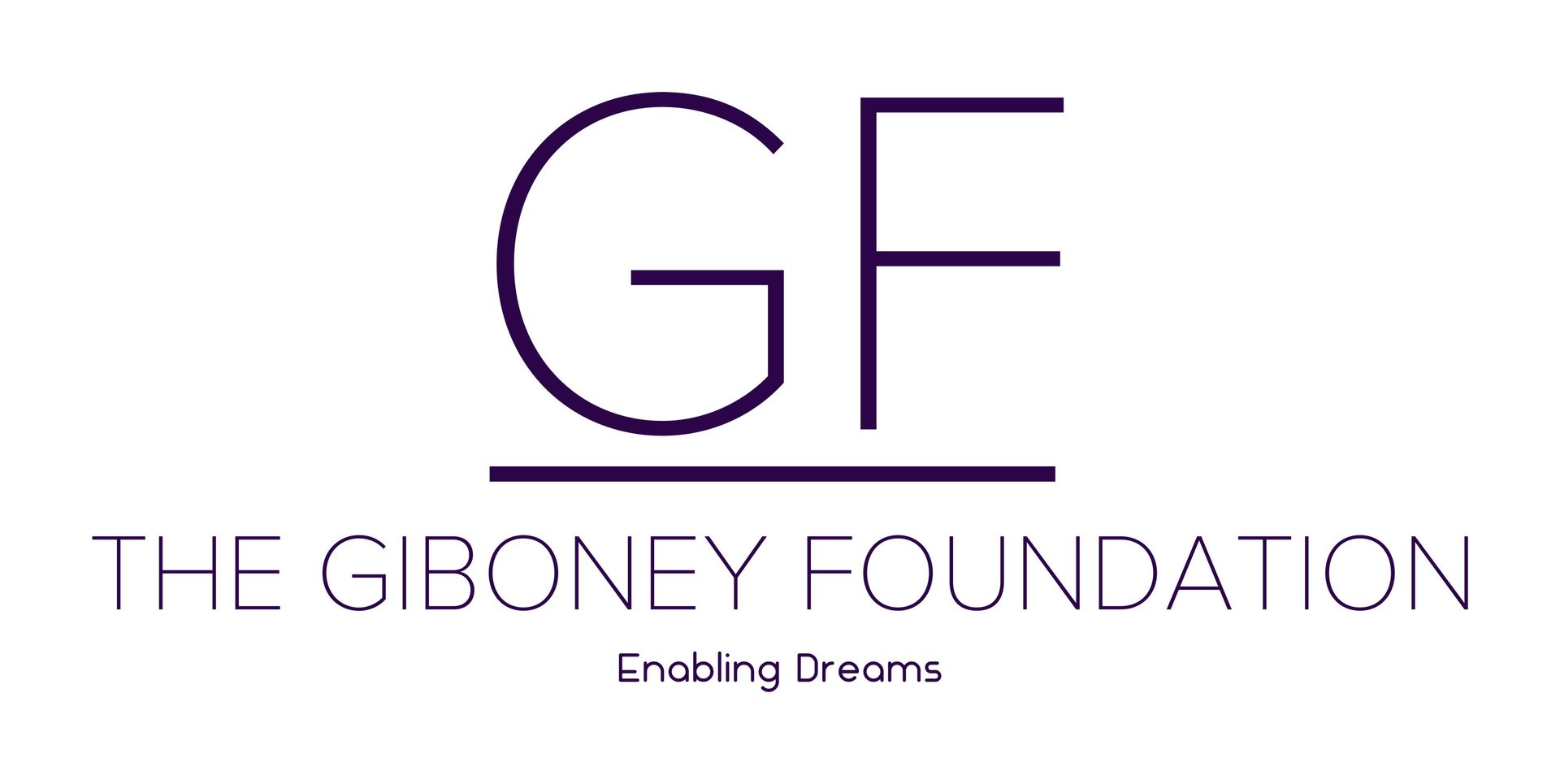The Foundation
The Giboney Foundation Quarterly Newsletter
Fall 2025
Insights from the Executive Director
Discuss challenges faced by minority students and young adults
A view into Giboney Foundation programs and efforts that are under development
Shining a light on success stories
Highlighting fundraising opportunities and how you can donate to our mission

01
Director's Notes
Craig Newell, Executive Director
The Giboney Foudnation
Education as Power in a Changing America
This season, our nation reminds us once again: progress is never guaranteed. Recent federal decisions have rolled back equitable access to collegiate programs, undermined diversity efforts, and reopened doors to discrimination that many believed were closing. Let’s be honest - this is more than politics. It is a direct challenge to equal opportunity, especially for students and professionals from underrepresented communities.
But at the Giboney Foundation, we don’t retreat in the face of challenge - we refocus, recalibrate, and recommit. And this fall, we are calling for a renewed movement in education and skill-building - not as a response of fear, but as a strategy for power and success.
The Game Has Changed
A college degree alone is no longer enough. Financial systems are tightening. Hiring bias is rising behind “merit-based” language. Scholarships are shrinking. Occupational gatekeeping is growing stronger. Our young people now enter a job market defined by technology, competition, automation, and inequity.
So, what do we do? We adapt. We sharpen. We build skills with purpose.
Education must now be more than schooling. It must be a lifelong strategy of self-investment, because access may be denied, but ability cannot be taken away.
The New Requirements for Success
Every student and young adult must now develop five forms of power:
1. Digital Skills
Artificial intelligence and data tools now shape every industry. You don’t have to be a programmer, but you must be tech-fluent.
2. Financial Intelligence
Wealth is built on knowledge - understanding credit, budgeting, investing, taxes, and entrepreneurship. Financial freedom protects career freedom.
3. Communication
Write clearly. Speak confidently. Lead with presence. Your voice is your leverage.
4. Self-Directed Learning
Skill up weekly: courses, certifications, books, mentorships. In today’s economy, the learners will become the earners.
5. Network Capital
Your connections are part of your education. Mentors, collaborators, peers—build a table if one isn’t offered.
A Message to Students
Do not wait for permission. Your education is yours to build, even when systems try to block the door. You may need to work harder than others. You may face rejection that has nothing to do with your talent. But remember:
Every skill you gain is a tool of freedom.
Every certificate is a weapon against limitation.
Every step forward defies expectation - and creates a path for someone behind you.
Our Role in This Fight
The Giboney Foundation will continue investing in your future - not with words, but action:
- Career accelerator programs
- Mentorship networks
- Scholarships and skill-based microgrants
- Entrepreneurship labs
- Financial empowerment workshops
We are building a pipeline of leaders who cannot be ignored.
When access is threatened, we build pathways. When doors close, we create our own. The challenges ahead are real, but so is our determination.
You have the power to shape your future. And we will walk with you every step of the way.
Onward,
Craig A. Newell
Executive Director, The Giboney Foundation
02
The Target
We will highlight a unique challenge our youth and young adults face as they prepare for their next stages in life.
Gatekeepers and Goalposts: Minority Students in a New Era of Collegiate Admissions

| Structural Advantage | Beneficiary |
|---|---|
| Private test prep & tutors | High-income students |
| AP & IB course access | Suburban & well-funded schools |
| Application coaching & consultants | Wealthy families |
| Unversity donor connections and legacy preferences | Elite families |
According to the National Center for Education Statistics (NCES, 2024), schools with majority-white student populations are 2.5 times more likely to offer advanced STEM and AP courses than majority-Black schools. Meanwhile, college counseling resources in underserved schools are severely stretched - one counselor for every 500 to 700 students, compared to 1 per 250 at affluent schools (NACAC, 2023).
If race can’t be considered in admissions, but wealth and legacy still can, then what we’re really seeing is a modern form of redlining in education.
Graduate Admissions: The Pipeline Is Shrinking
This issue goes beyond bachelor’s degrees. Graduate programs have long been pipelines to influence - doctors, lawyers, professors, policymakers, and that pipeline is narrowing.
Applications from Black students to medical school declined by over 7% in 2024 (Association of American Medical Colleges), while law schools reported a 5% drop in Black and Latino enrollment in 2024 (Law School Admissions Council). Professional fellowships that once helped diversify leadership are being defunded under political pressure. Equity programs are being renamed, buried, or eliminated entirely.
Less diversity in graduate school means less diversity in hospitals, courtrooms, universities, and boardrooms. This isn’t just unfair - it’s dangerous.
They Want Us Discouraged, but We Refuse
These policies are designed for silent defeat. They want students of color to stop applying. They want families confused by paperwork, lost in loopholes, intimidated by the process.
That will not happen - not on our watch.
Now is the time for strategy. Families must become aggressive advocates for their children’s educational paths. Students must start planning earlier, building skill-based résumés, and competing with proof, not excuses. If the system is going to work against us, then we must work smarter than ever before.
Solutions: How Minority Students Can Fight Back
1. Rewrite the Personal Statement with Purpose
Colleges can’t consider race, but they can consider lived experience. Students should write about:
- Overcoming underfunded schools
- Translating for immigrant parents
- Working jobs to support the family
- Leadership in faith or community organizations
These stories reflect grit and purpose - qualities admissions officers are still allowed to value.
2. Build a Competitive Academic Profile
Don’t wait for schools to provide access - go get it!
- Dual enrollment classes at community colleges
- Free online college courses (edX, MIT OpenCourseWare)
- Independent research projects
- STEM competitions and academic clubs
3. Augment Test Scores with Proof of Skill
If test scores are weak, show other evidence of excellence:
- Digital portfolios
- Certifications (Google Workspace, IT, data analysis)
- Winning essays or published work
- Community impact projects
4. Start Networking in High School
Admissions aren’t just about numbers—they’re about relationships.
- Join professional affinity groups (NSBE, NABA, SHPE)
- Connect with alumni mentors
- Attend university summer bridge programs
5. Take the Smart Path—Not the Traditional One
- Start at community college and transfer debt-free
- Consider private schools with strong aid (many offer full, need-based tuition)
6. Prepare Early for Graduate School
- Build relationships with professors now
- Join undergraduate research programs
- Collect strong recommendation letters early
- Keep a LinkedIn academic CV.
Parents Must Become Strategists
This fight isn’t just for students. Parents must:
- Start planning in 9th grade
- Help build a résumé early
- Demand school counseling meetings every semester
- Teach scholarship application rhythm (2 per week)
Silence is surrender. Advocacy is essential.
Final Word: They Moved the Goalposts, So We Must Change the Game
The return of gatekeeping in education is real. But so is our resilience. They can legislate against fairness, but they cannot legislate against preparation, intelligence, and strategy.
The future will not be handed to our students. But it can be built by them with clarity, resources, and support.
Over the past two years, a quiet but devastating shift has been unfolding in America’s education system. College admissions, once a battleground for equity and opportunity, are reverting to policies that overwhelmingly favor the wealthy and well-connected. The Supreme Court’s 2023 decision to eliminate race-conscious admissions in higher education wasn’t just a legal shift - it was a green light to restore systemic gatekeeping that targets minority students.
The message is clear: Opportunity is being rationed again. The door is closing for far too many Black, Latino, and first-generation students. Unless we respond with strategy and urgency, we risk losing a generation of scholars, professionals, and leaders.
The Myth of “Merit” Is Being Weaponized
After the Court ruled that colleges can no longer consider race as one of many factors in admissions, elite institutions began claiming they had returned to “pure meritocracy.” But the data shows exactly the opposite.
In the first admissions cycle after the affirmative action ruling, Black student enrollment dropped at selective universities, including a 33% decline at MIT, 28% at Harvard, and 18% at UNC Chapel Hill (Brookings Institution, 2024). Meanwhile, legacy admissions, where students are accepted partly because a parent or grandparent attended, remain legal and widely used at over 75% of top private universities (Harvard Civil Rights Project, 2023).
Where is the merit in that?
Legacy students, overwhelmingly white and wealthy, are nearly four times more likely to be admitted to Ivy League schools than non-legacy applicants with equal qualifications (The Atlantic, 2023). Yet programs that simply gave minority students a fair chance have been dismantled, while loopholes for privilege remain untouched.
This isn’t a meritocracy. It’s a maintenance plan for inequality.
Class Advantage Is Disguised as “Neutral Standards”
Let’s be honest: admissions have never been fair. They reward resources, not just ability.
03
Under Construction
We will spotlight programming by The Giboney Foundation that is being developed to directly support students and our communities
Financial Management and Investing for Young Adults
Amidst government shutdowns and company layoffs across a number of industries, financial management is more important than ever. With that in mind, we would like to reiterate the announcement of our financial management programs:
The Giboney Foundation is developing a comprehensive financial literacy program tailored specifically for young, minority adults. Partnered with Everfi, we aim to empower participants to make informed decisions, cultivate responsible financial habits, and secure their financial futures.
Program objectives:
- Financial Management Education: Provide participants with foundational knowledge and practical skills in budgeting, saving, debt management, and financial planning.
- Stock Market Investment Education: Introduce participants to the fundamentals of investing, including risk assessment, asset allocation, portfolio diversification, and the mechanics of stock market participation.
The first course, launched in November 2024 is the Introduction to Financial Literacy for High School Students. This free, newly updated financial literacy foundations course teaches students how to make informed financial decisions that promote financial well-being over their lifetime. The interactive lessons translate complex financial concepts in ways that help students develop actionable strategies for managing their finances. Topic areas include: Consumer Skills, Smart Money Habits, Budgeting, Checking Accounts, Saving Accounts, Credit and Debit Basics, Education ROI, Education & Financial Aid, Exploring Jobs & Careers, Beginning Employment, and Insurance Basics.
Please visit
https://www.thegiboneyfoundation.org/student-programs for more information.
04
The Spotlight
Highlighting success stories of The Giboney Foundation and our supporters!
Mallory Butts
- Spelman College graduate, Class of 2025, and the first recipient of the Mary Giboney Memorial Scholarship
As we prepared to offer our first $20,000 scholarship, we knew we needed a shining star to set the benchmark for excellence. Mallory Butts, Spelman College class of 2025, has exceeded all our expectations for the caliber of student and person that we could hope to support.
Mallory completed her undergraduate degree at Spelman College in Chemistry and is finishing her dual-major undergraduate education at Georgia Tech in Chemical Engineering, with a goal to become a cosmetic chemical engineer. She has already laid the foundation toward her goal by holding summer internships with The Estée Lauder Companies, Inc.
During her matriculation, Mallory received several awards and honors, including Glamour Magazine's College Woman of the Year in 2022 and being honored as the 41st Miss Spelman College.
The Giboney Foundation would like to congratulate this exceptional young woman who has a bright future ahead!
Onward!!

05
The Funding
Please participate in one of our upcoming fundraisers or provide a donation directly to the foundation to support our scholarship, mentorship, and community programming efforts!
2026 Giboney Foundation
Super Bowl Golf Shootout
February 6-9, 2026 - Las Vegas, Nevada
The Giboney Foundation would like to welcome you to the ultimate sports experience - the 2026 Giboney Foundation Super Bowl Golf Shootout, February 6-9, 2026, in Las Vegas, Nevada! Tee off in luxury and touchdown in style with our exclusive 3-night Las Vegas golf getaway at the world-famous Luxor & Casino and world-renowned Las Vegas Paiute Golf Resort! Additionally, private access to an open-bar Super Bowl viewing at the HyperX arena, hosting a 50-foot LED screen, is included.
This premium package combines world-class championship golf and the ultimate Super Bowl viewing experience, while supporting the next generation of students and professionals.
Contact us any time

